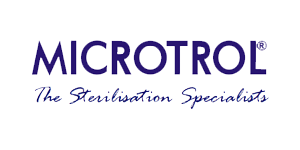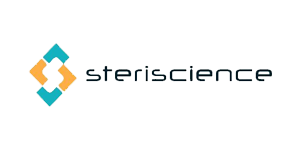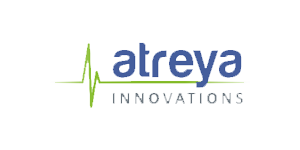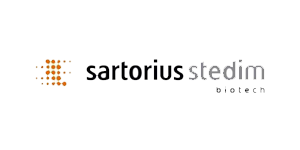
6 Mindsets That Could Derail Your Disinfectant Efficacy Testing Results
Disinfectant efficacy testing is a critical process that ensures disinfectants meet the stringent standards necessary to maintain sterile environments in industries like pharmaceuticals, medical devices, and healthcare. However, achieving reliable and consistent results in these tests goes beyond technical expertise—it requires the right mindset.
Certain attitudes or mindsets can inadvertently lead to errors, inefficiencies, or even regulatory non-compliance. In this blog, we will explore five common mindsets that could derail your disinfectant efficacy testing efforts and how to overcome them.
1. Mindset : “We’ve Always Done It This Way”
One of the most detrimental mindsets in any process is resistance to change. In disinfectant efficacy testing, this can manifest as sticking to outdated protocols, methods, or equipment simply because they’ve worked in the past.
The field of microbiology and regulatory standards is constantly evolving, with new methods, technologies, and disinfectants being developed. Clinging to the status quo can lead to non-compliance with updated regulations or failure to address emerging microbial threats.
Solution:
Foster a culture of continuous improvement and adaptability. Encourage your team to stay updated with the latest industry trends, guidelines, and best practices. Regularly review and revise Standard Operating Procedures (SOPs) to ensure alignment with current standards.
2. Mindset: “Good Enough is Enough”
When teams adopt a mindset of settling for mediocrity, the results can be disastrous. In disinfectant efficacy testing, this attitude might translate into skipping steps, rushing through processes, or overlooking minor deviations, assuming they won’t significantly impact results.
However, even small errors—such as improper disinfectant preparation or inaccurate microbial enumeration—can lead to unreliable results and potential regulatory scrutiny.
Solution:
Instill a mindset of excellence and precision. Train your team to recognize the importance of each step in the testing process and how even minor deviations can have significant consequences. Regular audits and performance reviews can help reinforce a commitment to quality.
Read More: 7 Things to Know When You Are Choosing Your Disinfectant Efficacy Testing Partner
3. Mindset : “It’s Just Another Compliance Requirement”
Viewing disinfectant efficacy testing as a mere checkbox exercise for regulatory compliance can result in a lack of genuine engagement and thoroughness. When teams focus solely on meeting the minimum requirements, they may overlook opportunities to optimize processes or identify potential contamination risks.

This mindset can also lead to complacency, where employees become disengaged and fail to appreciate the critical role their work plays in maintaining product safety and patient health.
Solution:
Educate your team on the broader implications of disinfectant efficacy testing. Highlight how accurate and reliable results contribute to product quality, patient safety, and organizational reputation. When employees understand the purpose and value of their work, they are more likely to approach it with diligence and care.
4. Mindset : “One Size Fits All”
Assuming that a single disinfectant or testing protocol is suitable for all situations is another mindset that can derail testing results. Facilities have unique microbial environments, and disinfectants that work well in one setting may not be effective in another.
Similarly, testing protocols must be tailored to reflect real-world conditions, such as the types of surfaces and microorganisms found in the specific facility. Applying a generic approach can lead to ineffective disinfection practices and unreliable test outcomes.
Solution:
Adopt a risk-based approach to disinfectant efficacy testing. Train your team to assess facility-specific factors, such as environmental isolates, surface types, and operational workflows, to select appropriate disinfectants and testing methods. This tailored approach ensures more accurate and relevant results.
5. Mindset : “Training is a One-Time Event”
Underestimating the importance of continuous learning is a mindset that can severely impact the accuracy and reliability of disinfectant efficacy testing. When training is treated as a one-off event, employees may lack the knowledge to adapt to updated guidelines, new testing methods, or emerging challenges.
This can result in inconsistent practices, errors, and even non-compliance during audits. A team that isn’t continually trained is more likely to make costly mistakes.
Solution:
Make training an ongoing process. Regularly update your training programs to include new regulations, emerging technologies, and case studies from real-world scenarios. Encourage cross-functional learning to enhance collaboration and understanding among team members. Periodic assessments and refresher courses can also help reinforce knowledge and skills.
6. Mindset : “We Don’t Need to Validate Our Methods”
A common misconception in disinfectant efficacy testing is assuming that standard methods or previously used protocols don’t require validation. This mindset often stems from overconfidence in established practices, leading teams to skip critical validation steps that confirm the applicability and reliability of their methods in specific settings.

Failure to validate can have serious consequences. For instance, the environmental conditions or microbial strains in your facility may differ significantly from those outlined in standard protocols. Without validation, you risk obtaining results that are not representative of your actual operational environment, potentially leading to ineffective disinfection practices.
Solution:
Promote the importance of method validation as an integral part of disinfectant efficacy testing. Train your team to recognize that even standard methods must be tailored and validated for your specific use case. Conduct validation studies to ensure that the testing protocols and disinfectants are suitable for your facility’s unique microbial challenges. This practice not only ensures reliable results but also demonstrates regulatory compliance during audits.
Read More: Debunking the Top 7 Myths in Disinfectant Efficacy Testing
How to Foster the Right Mindsets with Expert Guidance
Overcoming these detrimental mindsets requires a combination of training, leadership, and expert support. This is where Prewel Labs can make a difference.
At Prewel Labs, we understand the complexities of disinfectant efficacy testing and offer customized solutions to address your unique challenges. Our services include:
- Expert-Led Training Programs: Equip your team with the knowledge and skills to approach testing with precision and confidence.
- Tailored Risk Assessments: Identify and mitigate potential risks to ensure accurate and reliable testing results.
- Ongoing Consultation: Stay updated with the latest industry trends, guidelines, and best practices through our expert guidance.
With Prewel Labs as your partner, you can build a team that not only excels in technical execution but also approaches disinfectant efficacy testing with the right mindset and comply with regulations of firms like FDA, EMA, and WHO.
Conclusion
Disinfectant efficacy testing is more than just a technical process—it is a critical component of quality assurance and compliance. However, the success of these tests depends not only on the methods used but also on the mindsets of the team performing them.

By addressing and overcoming detrimental attitudes like resistance to change, complacency, and a lack of continuous learning, organizations can ensure accurate, reliable, and impactful results.
Investing in the right training, fostering a culture of excellence, and partnering with experts like Prewel Labs can help transform your team’s approach to disinfectant efficacy testing, ensuring consistent quality and compliance every step of the way.


























